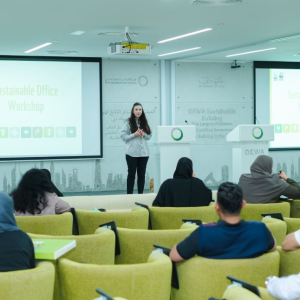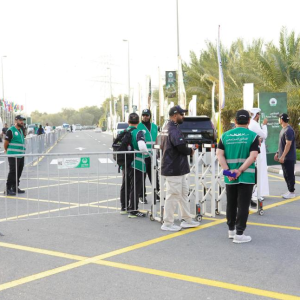A New Chapter for Global Gender Equality
Women’s empowerment took center stage as the United Arab Emirates co-hosted the Eleventh Glion Human Rights Dialogue in Switzerland. This global platform, themed “Beijing at 30: Mobilising the UN Human Rights System to Accelerate Progress Toward Gender Equality and the Full Enjoyment of Women’s and Girls’ Rights”, provided an opportunity for the UAE to reaffirm its steadfast dedication to advancing gender equality worldwide.
The UAE’s leadership role at the dialogue showcased its determination to build a world where women and girls are empowered to reach their full potential. It marked another milestone in the country’s long-term commitment to championing inclusive development and human rights.
Why the Glion Dialogue Matters
The Glion Dialogue is not a standard conference. Organized as an annual high-level retreat, it brings together states, UN agencies, human rights institutions, civil society voices and experts in an informal setting aimed at open, forward-looking and solutions-focused debates.

This year, the event gathered key stakeholders to reflect on how the global human rights system can better accelerate gender equality. For the UAE, the event offered a platform to showcase its achievements in empowering women and to share its perspective on scaling progress beyond rhetoric.
UAE’s Evolving Role in Women’s Empowerment
In recent years, the UAE has made significant strides in strengthening legal, institutional and societal frameworks for women. According to official accounts, women enjoy equal legal status in education, employment and public service; in many sectors, they have become leading contributors.
By co-hosting the Glion Dialogue, the UAE communicated two important points:

- It is committed to the multilateral human rights system and to taking a visible role within it.
- It recognises that empowerment of women and girls is fundamental to sustainable national and global development.
Key Highlights from the Dialogue
At the opening session, the UAE’s Permanent Representative to the United Nations in Geneva delivered remarks emphasizing that investing in the rights of women and girls is equivalent to investing in the future of nations. The UAE delegation, including deputy and counsellor level officials, engaged in interactive panels, giving voice to practical approaches for accelerating gender equality.
During discussion groups, the UAE led dialogue on best practice approaches for national implementation of gender-equality recommendations and on making the UN system more results-oriented for women and girls.
More broadly, the event brought together representation from the Office of the United Nations High Commissioner for Human Rights (OHCHR), UN Women, the United Nations Population Fund (UNFPA) and the Global Alliance of National Human Rights Institutions (GANHRI) — highlighting that gender equality is recognised as a shared responsibility of states, institutions and civil society.
Translating Dialogue into Reality: Practical Commitments
One of the most meaningful aspects of the UAE’s participation is its focus on implementation — not just discussion. Within the dialogue, emphasis shifted toward measurable impact, national frameworks and cross-stakeholder partnerships. This aligns with the UAE’s broader national priorities: institutional bodies such as the UAE Gender Balance Council work to close gender gaps across government sectors and decision-making roles.
Across education, employment and politics, the UAE has been promoting women’s participation and breaking new ground — for example, female representation in the public sector, business ownership and STEM fields. These domestic pre-conditions strengthen the UAE’s credibility when engaged in global forums.
Why Women’s Empowerment is Central to Global Development
Empowering women and girls is not simply a moral imperative — it is essential for economic growth, social resilience and institutional strength. As the UAE’s representatives emphasized, when women can participate fully and equally, nations unlock potentials that benefit everyone.
Moreover, in the context of the UN-led human rights system, achieving gender equality remains one of the most visible and measurable goals. Dialogues like Glion XI provide opportunities to reflect on what is working, what is lagging and where course-correction is required.
Challenges on the Road Ahead
While progress is real and meaningful, the journey toward full gender equality remains demanding. Across geographies, gaps persist in women’s leadership, pay equity, economic opportunity, protection from gender-based violence and societal norms. For the UAE, regional leadership also comes with heightened expectations to show consistent, visible progress both at home and abroad.
Multilateral settings also demand transparency, accountability and measurable outcomes — turning high-level commitments into tangible interventions. For states including the UAE, this means ensuring that dialogue is matched by sustained action, resource allocation and partnership with civil society and the private sector.
What the UAE Hosting Means for the Future
By co-hosting the Glion Dialogue, the UAE sent a message of ambition: it sees women’s empowerment and gender equality as integral to its diplomatic identity. This sets a precedent for the UAE’s future international engagements, shaping how it is perceived as a partner in human rights and sustainable development.
Moreover, this leadership role can encourage other states in the region — and beyond — to elevate gender equality within diplomatic, development and human-rights agendas. Shared regional ambition can accelerate progress, while global cooperation becomes more visible and purposeful.
Bridging Global Ambition and Local Action
The true impact of the Glion Dialogue will ultimately be judged not by speeches, but by the changes that reach women and girls on the ground. For the UAE, this means building on strong foundations in education, employment and governance, and ensuring that policy shifts are translated into lived realities.
It also means leveraging international cooperation, partnerships with UN institutions, civil society advocacy and robust data-driven tracking of progress. When outcomes are measurable, accountability grows — and the promise of gender equality moves closer to being realised.
Looking Ahead: A Future of Inclusive Progress
As the world marks the 30th anniversary of the Beijing Declaration and Platform for Action, the call to action has never been clearer: commitments must become interventions, aspirations must become access, and rights must become reality. The UAE’s role at Glion XI suggests it is willing to play that role.
But the journey is collective. It requires sustained effort across governments, institutions, the private sector, civil society and individuals. By aligning national ambition with global cooperation, and by turning dialogue into delivery, we move closer to a world where every woman and girl can thrive.
In co-hosting the Glion Dialogue and reinforcing its commitment to women’s empowerment and gender equality, the UAE has added a meaningful chapter to its diplomatic story — one that seeks shared progress, inclusive growth and enduring change.
Do follow UAE Stories on Instagram
Read Next – Three UAE Ministers Take Oath Before President, Promise Bold Leadership












